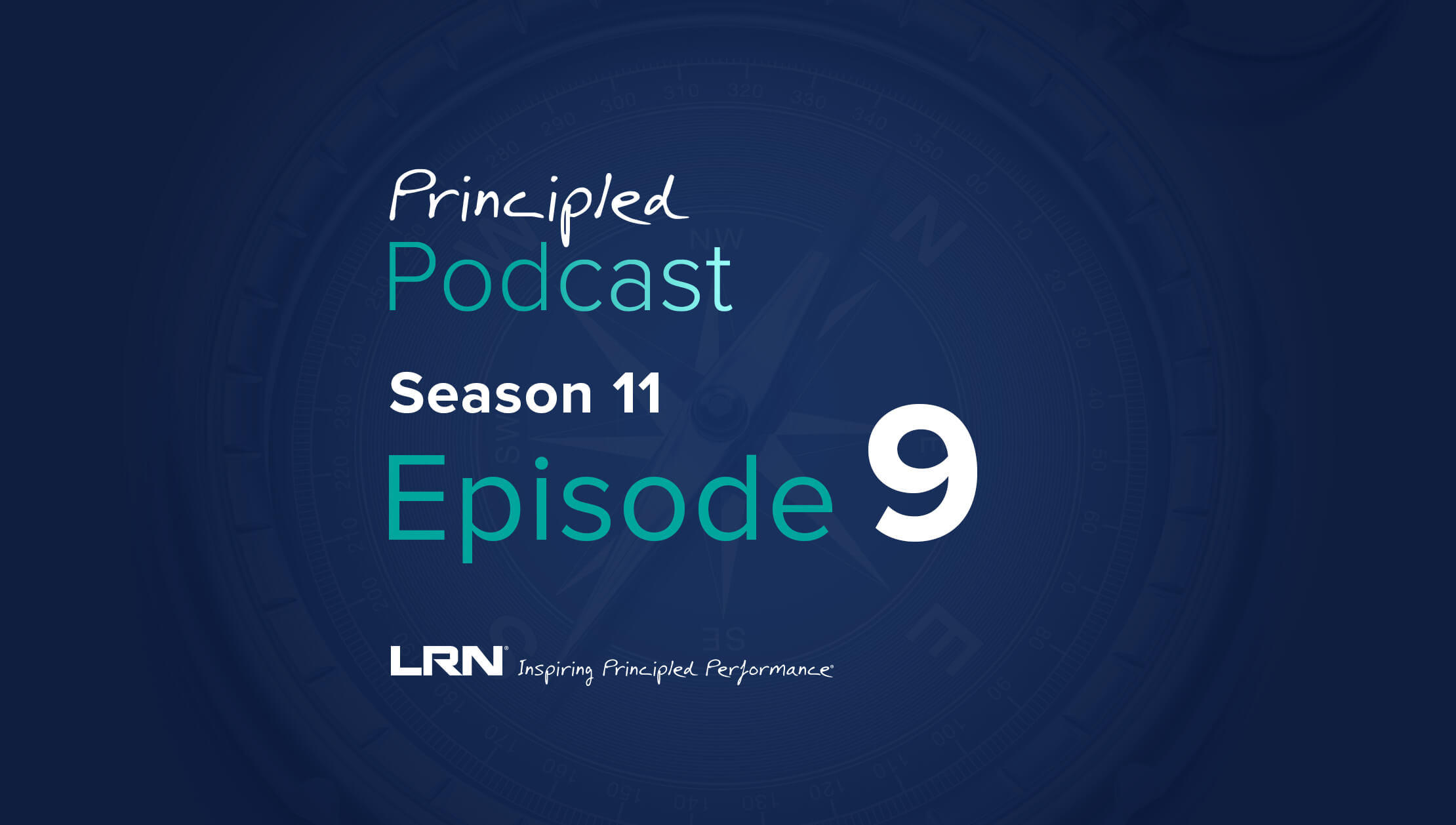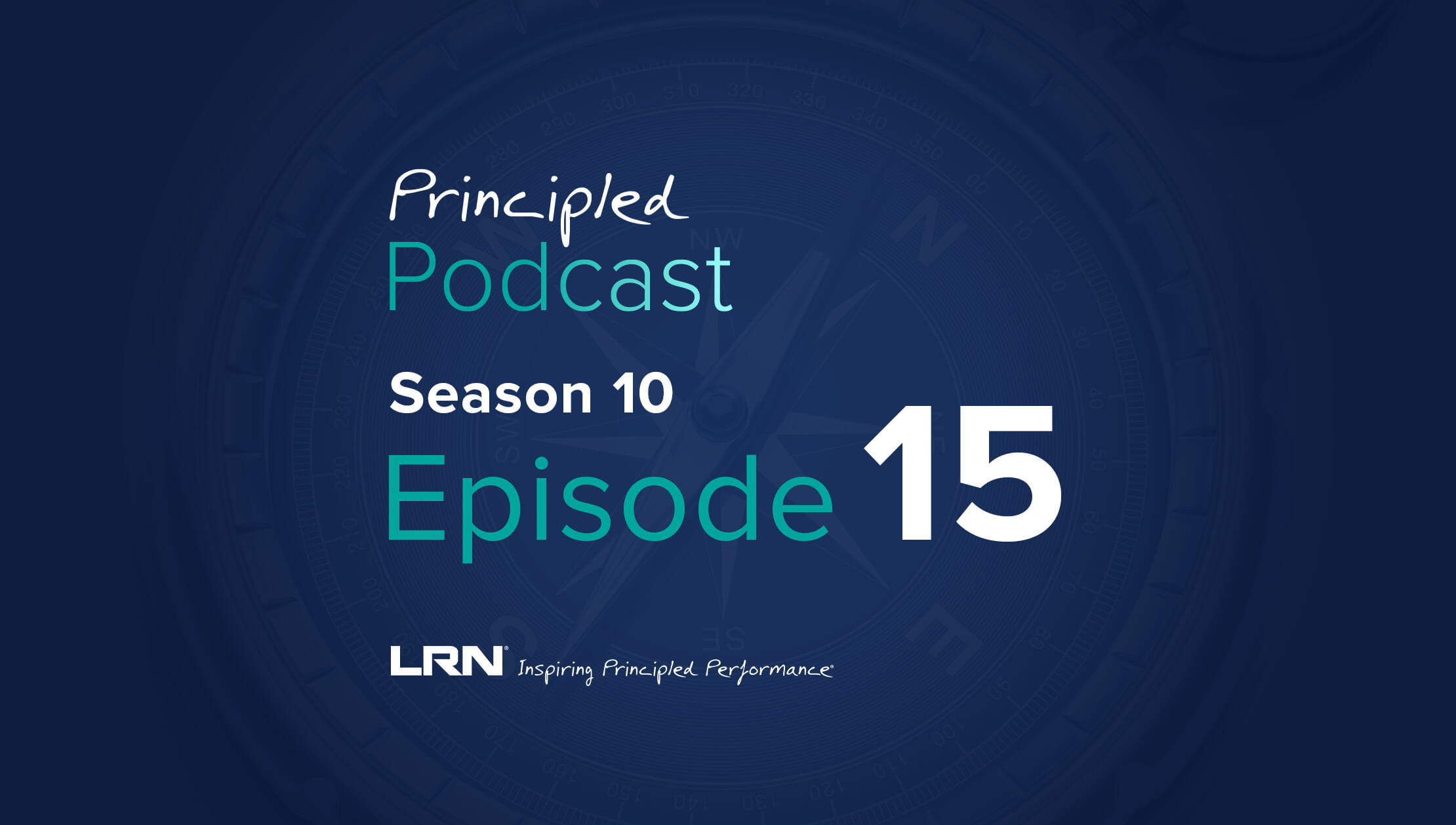This blog post is the first in LRN's “Strengthening the foundation” series, where we dive into research, best practices, and perspectives on building and maintaining ethical corporate culture at the employee, C-suite, and board levels.
The modern-day workforce's desires, demands, and expectations are shifting in the evolving business landscape. Employees seek to work with ethical and meaningful organizations to contribute to a better world and society. Research shows that cultivating an ethical corporate culture is rising in importance when it comes to engagement, talent retention, and overall business performance:
- In a 2021 Deloitte study on the evolving worker-employer relationship, 86% of executives predict employees will increasingly value working for a company with a meaningful mission and an opportunity to make an impact on that mission.
- A recent Gartner survey found that when an organization acted on today’s social issues, the proportion of workers who were considered highly engaged increased from 40% to 60%.
- The LRN Benchmark of Ethical Culture found that companies with the strongest ethical cultures outperform others by up to 40% across all measures of business performance—including customer satisfaction, employee loyalty, innovation, adaptability, and growth.
However, research also suggests a troubling disconnect between what a company says it values and the real-life experience of employees. Case in point: data from the LRN Benchmark of Ethical Culture revealed that individual contributors (people whose job titles are “office, administrative, individual contributor, skilled manual, warehouse, or factory worker”) report the lowest scores across all ethical culture dimensions—including trust, fairness, and belonging. In contrast, senior leadership reports ethical culture scores that are 11 percentage points higher on average. This is especially concerning as individual contributors make up the majority of the workforce. According to Gallup, companies typically have 10 individual contributors for every one manager.
Understanding and investing in the employee experience is foundational to shaping organizational culture, a position we have written about extensively at LRN. Let's explore a few ways that organizations can bridge this divide and strengthen culture in the process.
Mind the gap: Assessing how individual contributors and leaders differ in their experience of culture
There have been many studies around the corporate “leadership divide,” a concept whereby the further up the corporate hierarchy one ranks, the more positive their perceptions of the company culture. According to LRN research, the dimensions of culture with the greatest divergence between senior leaders and individual contributors are:
- Rewards and recognition: The extent to which leaders express appreciation for team members and recognition for how a job is done, not just outcomes achieved.
- Trust: The extent to which employees experience trust (multi-directional) and behaviors that foster trust.
- Performance under pressure: The extent to which ethical standards are upheld when under pressure.
In order to strengthen your organization’s culture, understanding how these dimensions play out is paramount. Consider what tools and assessments you can leverage to gain feedback from workers at all levels about their experiences and perceptions, such as regularly surveying your employee base to spot strengths and weaknesses in your company culture. This might reveal cultural challenges that impact the employee experience, which leaders may be either unaware or defensive of. In those instances, it is important to maintain an open dialogue that acknowledges the realities of the individual contributor role and focuses on improving culture for everyone.
Walk and talk: Setting (and reinforcing) guiding principles on ethical culture—for everyone
According to the Benchmark of Ethical Culture, a culture characterized by corporate ethics is a top predictor of employee loyalty. To move the needle on these elements and strengthen your culture, you must articulate your mission, values, and expectations for ethical conduct to employees clearly. All employees should understand what they mean and how they apply to their roles. Written, verbal, and behavioral communication are all crucial to this effort.
Your company code of conduct offers an opportunity to introduce and establish your culture with employees, but it does not stop there. Regularly reinforcing these concepts in town halls, on the company intranet, and through internal communications can help underscore their relevance and keep them top of mind for everyone in the organization. Offering examples of behavior that supports those values—as well as repercussions for lapses, particularly by those at the top—can also provide people with a clearer picture of how you recognize ethical conduct and handle misconduct.
Speak, listen, and act: Showing employees their voices and experiences are valued
When it comes to garnering greater trust and loyalty among employees, prioritize a speak-up culture for employees and a “listen up” culture for the leaders. The Benchmark of Ethical Culture report reveals that employees in organizations with healthy ethical cultures are 1.8x more likely to report their concerns to their immediate manager—a strong indicator of trust. But it is essential that leaders—from middle management to the C-suite—play an active role in creating an environment where people feel comfortable sharing their experiences and reporting any ethical misconduct they observe. Training leaders to handle employee concerns appropriately is critical here. Demonstrating respect and follow-through on any employee concern—even if the outcome is not what they desired—is critical to maintaining trust and confidence in the organization.
It is also important for leaders to follow through on their commitments to cultural growth—especially if they have sought the opinions and input of employees. If your organization fails to implement any initiatives necessary for improvement after surveying the entire company with a culture assessment, people will likely lose faith. Companies are recommended to collect ethical culture metrics, select the top one to three areas of opportunity, and develop strategic action plans for cultural improvement. These plans should contain key objectives, a sequence of action items, realistic timelines, stakeholder accountabilities, budget approvals, and metrics for gauging success.
The key takeaway
Strategic leaders know that a company is nothing without its people. Understanding the employee experience and perception of your organization is a valuable investment of time and resources—and can only help you create a more ethical corporate culture.
For more information on how to strengthen your own cultural foundation, check out these resources:



